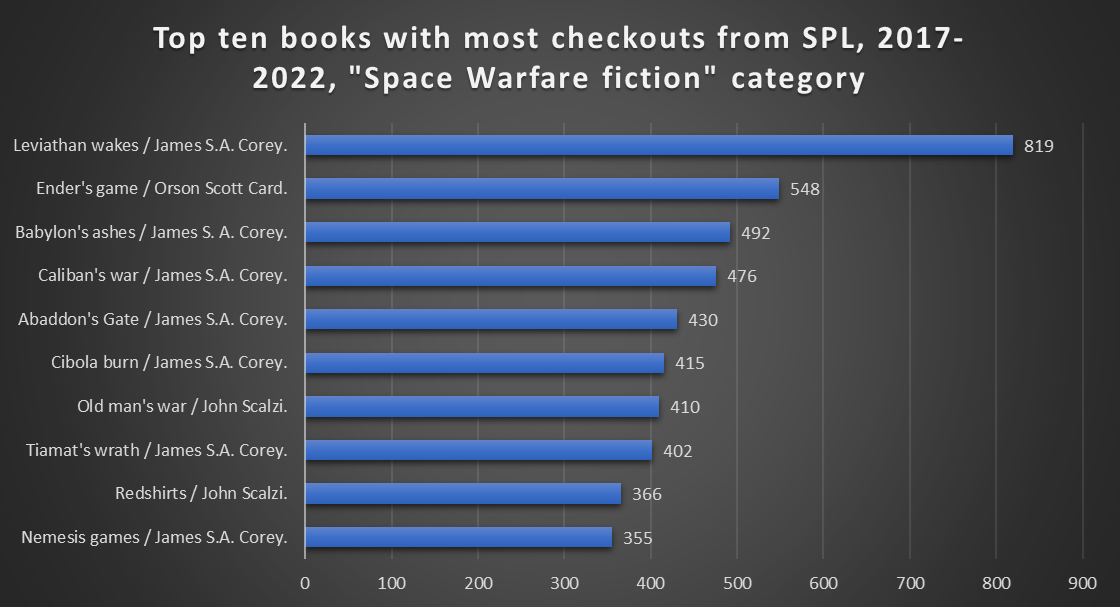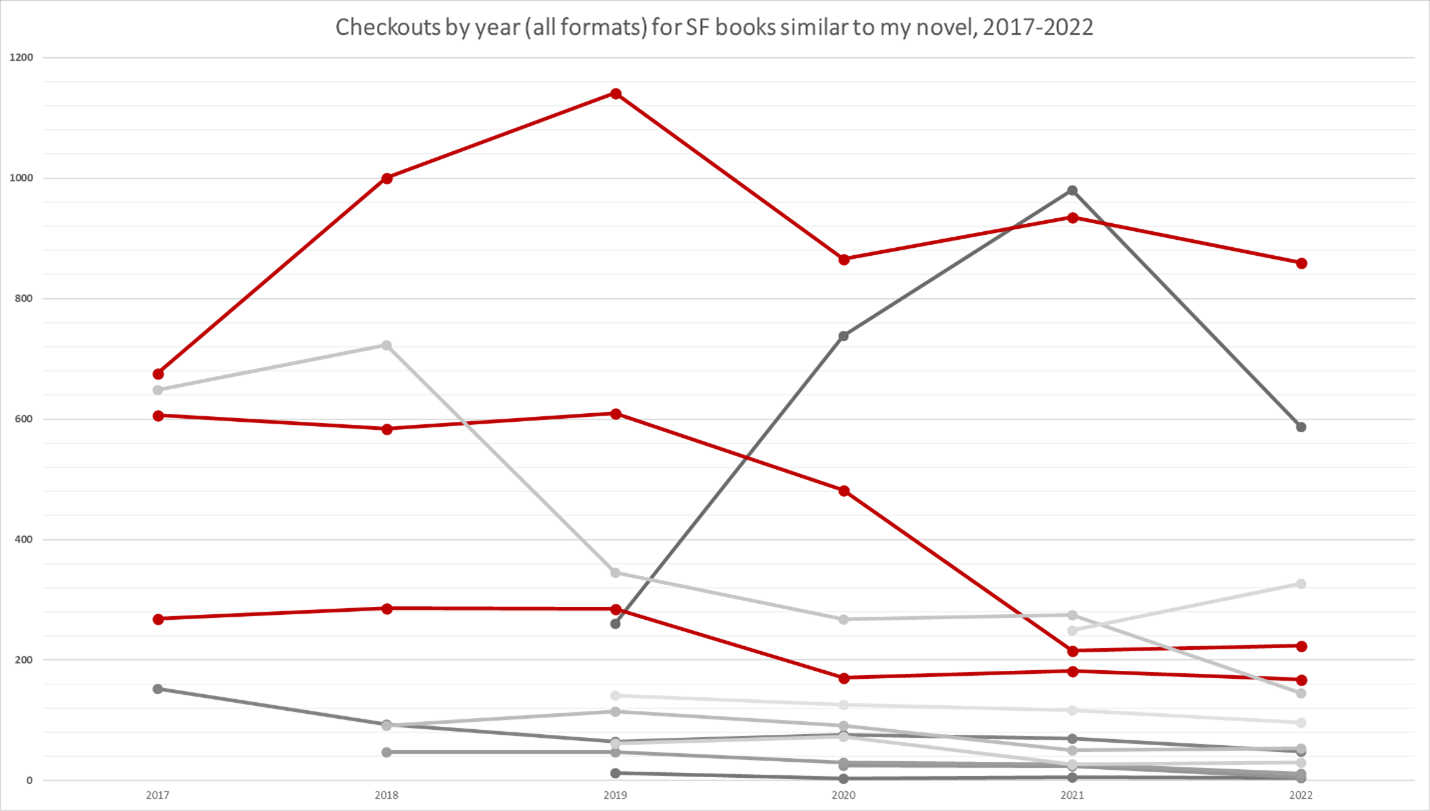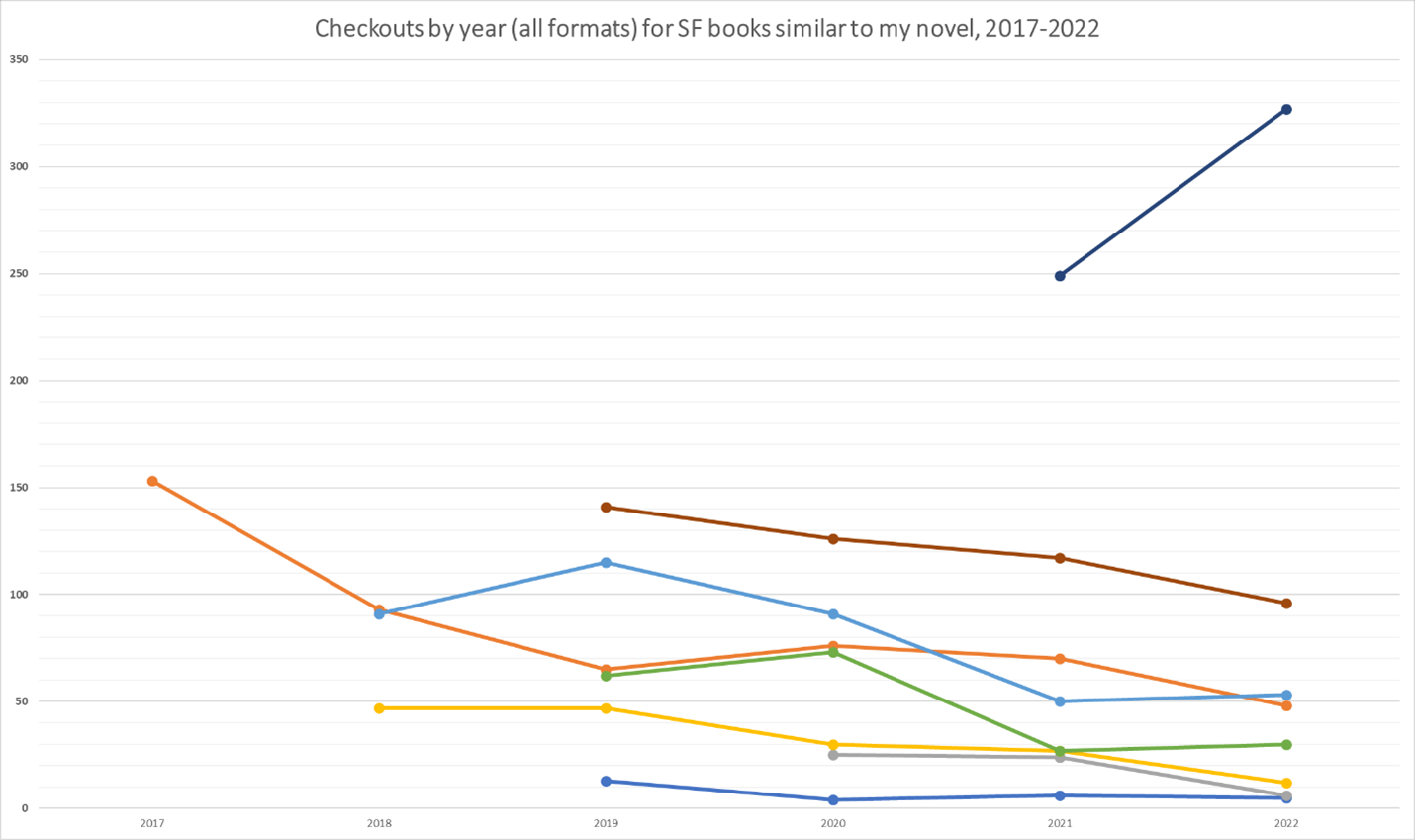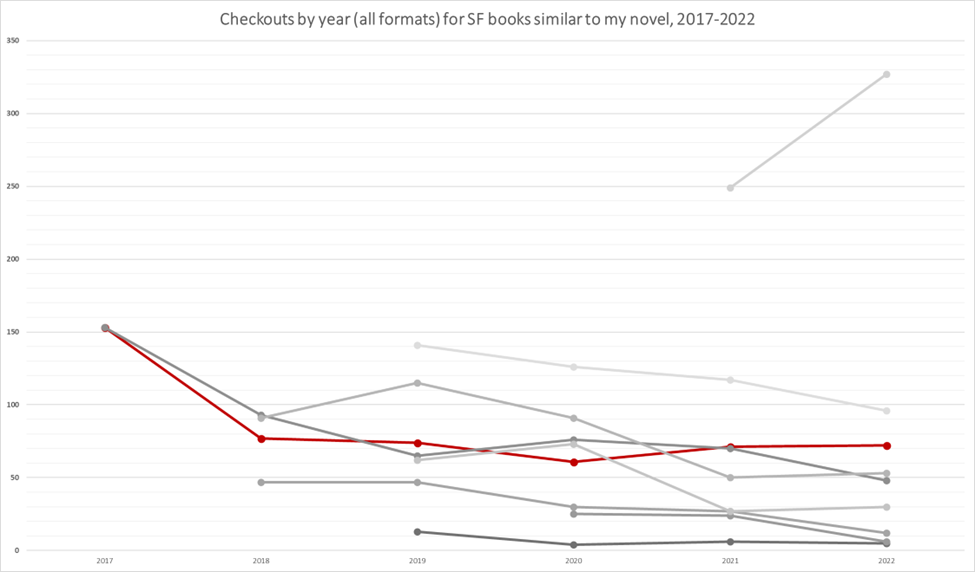The text below comes from a Twitter thread I wrote on October 24, 2022. I’ve belatedly decided to move it to a post on my site. I’m starting to use Threads more now, so I’ve updated the account links from X to Threads for authors who’ve announced they’ve moved shop.
Can I improve my query letters using data? While I await replies to my queries (#AmQuerying) I decided to do some data analysis on checkout patterns for books similar to Thorn of Concordia, my SF space opera manuscript, using Seattle Public Library open data. Here’s what I found:

Thorn of Concordia is a #sciencefiction space opera, so I began by looking at the Seattle Public Library’s top ten most checked out books in the past six years in the “space warfare fiction” category (yes, it exists). The chart above the results across physical, ebook and audiobooks.
My favorite genre is dominated by the giants: @JamesSACorey and The Expanse (seven slots!), John @scalzi, and @orsonscottcard’s Ender’s Game. No surprises here. Hey, we’ve all comped against some of these, haven’t we? These represent the “ceiling” for my genre.
I compared these books to my favorite SF novels from the past few years. They are
- @ArkadyMartine’s A Memory Called Empire
- @marko_kloos’s Aftershocks
- @KBWagers’s Behind the Throne
- @scalzi’s The Collapsing Empire
- @JohnBirmingham’s The Cruel Stars
- @AllenJStroud’s Fearless
- @Skrutskie’s Hullmetal Girls
- @JSDewes’s The Last Watch
- @SKDunstall’s Stars Uncharted
- @MeganEOKeefe’s Velocity Weapon. (2023 side note: I need to rerun this for her new Devoured Worlds series).
I love these books! Here are the results: The red lines represent Leviathan Wakes, Ender’s Game and Old Man’s War.

So the heavy hitters in my genre achieved 600-1100 checkouts per year among my fellow Seattleites. But what’s that dark line that surpasses The Expanse in 2021? That’s @ArkadyMartine’s A Memory Called Empire, proving its phenomenon status in Seattle (just like everywhere else)! (2023 side note: This doesn’t even consider the sequel, A Desolation Called Peace).
A common tip for comps is “don’t say you wrote the next Expanse; instead comp to other successful books in your genre.” Now I know the ceiling, so let’s remove the megahits and multi-Hugo/Nebula winners, and focus on awesome books with a less rarefied level of success. Here goes:

I won’t do a per-book analysis, and instead highlight the trend (with one outlier exception), which I guess correlates to the number of SF space opera fans in Seattle. Also, the Year-over-Year dropoff is relatively low, compared to other genres. I guess SF fans stay SF fans!
So, how many checkouts per year do average non-megahit SF space action novels have? In the chart below a red line marks yearly average. I included the outlier because… did I say I love these books? The answer: ~50-75 checkouts/year for successful non-megahits (6-10% of the ceiling).

By the way, these books range from 81K to 164K words with a 113K average and a 115K median. My book is slightly above the median. Maybe I should take out my chopping axe again? On the other hand, the two highest on the chart are also the longest two. I think I’ll hold off on the axe for now.
Takeaways: Successful SF space opera books averaged 50-75 checkouts/year by Seattleites. Assuming correlation between SPL checkouts and BookScan sales (an assumption for which I have no evidence), I have a guideline for comp selection. Also, I might look a bit less stupid next time I pitch my book to an agent.
What I’d like to know: Is there a correlation quotient between SPL checkout data and broad BookScan patterns? I don’t have BookScan so don’t have a way of knowing. Maybe someday I’ll find out.
The idea for this analysis came to me after reading the excellent article by @mellymeldubs, @dan_sinykin, and @LBMcGrath, that mentioned the Seattle Public Library has released book checkout data from 2005 onwards: https://www.publicbooks.org/where-is-all-the-book-data/
(Also thanks to David Christensen & team and the @SPLBuzz for making this data open and available in the first place: https://data.seattle.gov/Community/Checkouts-by-Title/tmmm-ytt6/data)
Disclaimers: I don’t have industry insider knowledge, and don’t even have an agent yet, so don’t assume anything above makes sense. I didn’t look at variables such as writer experience, trilogy ROI, etc. SF checkout patterns of Seattleites don’t prove correlation with anything.